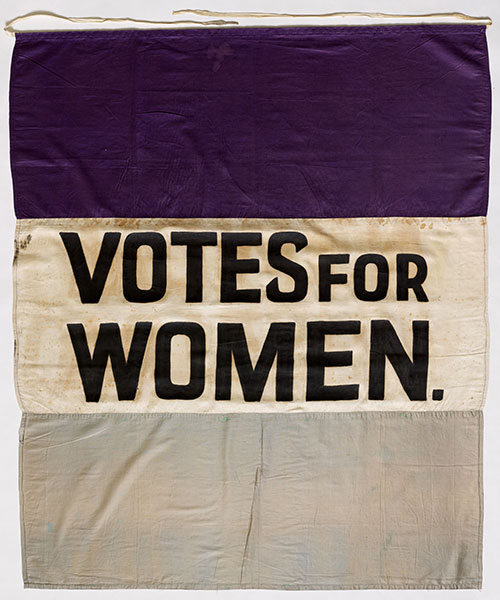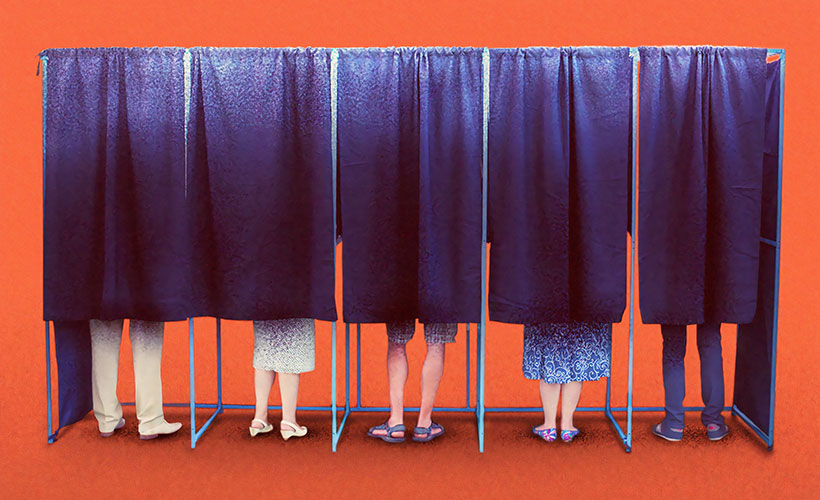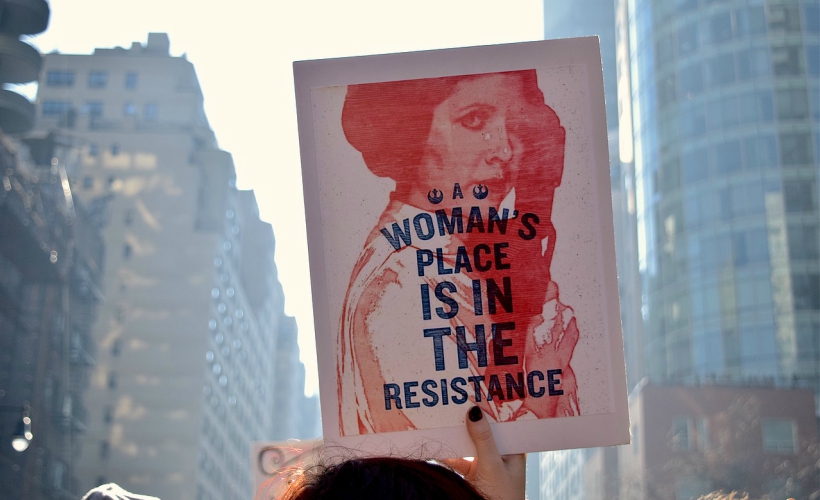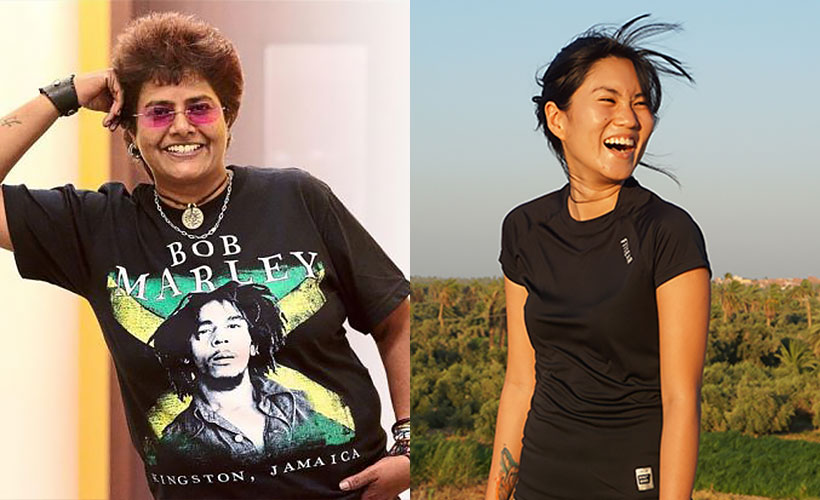
Can you imagine not being able to vote just because you’re a woman?
Many of us take it for granted that once we reach 21 – or even younger in some countries – women can vote. When our countries became independent from the colonial powers after World War II, none of the new governments (mostly consisting of men) entertained the idea of not giving women the right to vote. Having fought so long for the right of self-determination of their own countries, alongside women as well, it seemed rather petty to deny half of the population that right.
But universal suffrage, the right of every citizen to vote for the government they want, was not an idea that was natural to everybody. At least not among the European colonisers. In England, for example, a person’s right to vote was tied to their ownership of property. As a result, because few women-owned properties, and indeed were considered property themselves, women, in general, could not vote. Property-owning women who did marry then found that their property was given over to their husbands because women were deemed unable to manage it themselves. Any fan of Downton Abbey will recognise its basic premise: Lord Crawley was able to maintain his palatial home only because he married a rich American heiress, and then had to ensure that his four daughters also married good men because all their inheritance would go to the men.
Equality in the East versus the West
This, however, was a far cry from the norms in many tribal and aboriginal societies, where women had far more equal status than English women. For example, among Native North American nations, women had a lot of rights. Among the Iroquois nation, the Iroquois elder, Chief Jake Thomas, explained, “All the clan mothers are equal. Nobody has more power, no matter what nation. And same way with all the Chiefs you elevated; nobody will ever have any more power… The Chief cannot tell another Chief what to do because he has a Clanmother.”
While their lack of legal status prevented European women from owning property, many First Nations women held rights equal to men. Among the Kootenay tribe of British Columbia, it was women who owned property rather than men. Among the Chippewa, “Though the women are as much in the power of the men, as any other articles of their property, they are always consulted, and possess a very considerable influence in the traffic with Europeans, and other important concerns.” As the Aboriginal Justice Inquiry in Manitoba noted, “Women were never considered inferior in Aboriginal society until Europeans arrived.”
This was also true in Southeast Asia in pre-colonial times. The distinguished historian Anthony Reid observed that the relative autonomy and economic importance of women in the sixteenth and seventeenth-century Southeast Asia probably were higher than in any other part of the world. This held true to the fight for independence. In 1946, an astonished British official made this observation about a rally protesting the Malayan Union: “In the towns, there were demonstrations of 5,000 to 10,000 people… the most remarkable thing of all was the part the women were playing… in the 14 years I lived in Malaya, I had scarcely spoke(n) to a Malay woman. But today, they go up on political platforms and make speeches: unmarried girls make speeches through microphones that would have not have disgraced anybody in this committee.”
There are other stories about remarkable Malay women, and women from other ethnic groups, who fought for independence. They were passionate and courageous, and sometimes put the men to shame. One such famous occasion was in 1947, when a woman leader, Sakinah Junid, exhorted protestors to walk six miles to the site of a rally after buses refused to stop for them. She even offered to change clothes with the men if they did not want to walk. Against this background, how could the women have been refused the vote?
Western women finally won the right to vote between 1917-1920 after they showed how much they were needed during the First World War. British women won the right to vote after the struggles of the Suffragettes while American women obtained the 19th Amendment to their Constitution in 1919 and it was finally ratified on 18 August 1920, a day now commemorated as Women’s Equality Day.
A seat at the table
Winning the vote is not everything for women. Both British and American women still have much to fight for in their own countries. For example, American women still don’t get paid maternity leave. Being able to vote once in four or five years is not enough to ensure women are able to benefit from their rights. More importantly, they must have a seat at the table where the most important decisions are made. As of June 2019, 23 countries have women as President or Prime Minister which is a record high. Britain has had two women Prime Ministers and currently has 220 female parliamentarians which is 34 per cent of the total number of MPs.
The US has never had a female President although Hilary Clinton came close in 2016. They also have never had a female Vice-President, although two women, Geraldine Ferraro and Sarah Palin, have run, and currently, Kamala Harris is running as the Democratic vice-presidential candidate for the 2020 elections. There has been an upsurge of women standing for elections recently, partly as a reaction to a President who many view as a misogynist. In 2018, a record-breaking 103 mostly Democratic women (23 per cent) won seats in the House of Representatives, giving their party control of the House and making Nancy Pelosi the highest-ranking woman in the US as Speaker.

Malaysia and women’s equality
In the rest of the world, colonialism has not been great for women. Where once they had the right to sit as equals with men to decide on issues affecting their communities, things changed when colonisers came with not just a view of the colonised peoples as inferior, but also bringing with them their own notions about women. British administrators came to Malaya with Victorian beliefs about women and their supposedly inferior capabilities and imposed it on the native women. Thus grew the perception of Malay women as meek and submissive, despite the fact that matrilineal societies such as in Negeri Sembilan already existed. These beliefs about Malay women have been difficult to shake off, even after independence, and it is often reinforced by the many stereotypes promoted in the media. Until women are able to obtain a role in decision-making in media organisations, these biases will prevail.
Today, we know that Malaysian women are capable of anything they put their minds to. They are doctors, engineers, academics, entrepreneurs, fighter pilots, scientists, and activists. But still too few are seated at the most important tables. Only a dismal 14 per cent of parliamentarians are women. Although more women joined the Cabinet in 2018 with five portfolios including the Deputy Prime Minister, the new government that took over in 2020 has the same number of women but in an expanded Cabinet, thus reducing the percentage. The record number of women heading GLCs and other important institutions in the previous government have almost all been replaced by male politicians.
While women have the vote, they have also shied away from entering politics and standing for elections. Politics is seen as a hostile male-dominated arena and standing for elections requires stamina that few women have since they still have to take care of home and family. But as legislators such as Alexandria Ocasio-Cortez from New York and Hannah Yeoh from Segambut have shown, it can be done. Confidence and support are all women need.
The push forward
This is where Zafigo comes in. We believe that the ability to travel safely and successfully with full knowledge of what to expect has the added benefit of building self-confidence and enhancing our worldview. If you can navigate the world, especially alone, you can do anything, including participating in politics and even standing for elections. There are already movements that are helping women prepare to do just that, one of them being The 111 Initiative. They aim to elect women into half of the Malaysian parliamentary seats. It’s very ambitious, yes, but we have to start with grand ambitions in order to work our way to the top.
Undoubtedly for American women, Women’s Equality Day 2020 is a particularly significant one because of Kamala Harris. She is the first African-American and first Indian-American woman to be named a Vice-Presidential candidate, thus appealing to a much broader constituency than any previous candidate. We in Asia will also watch her progress with interest because although we have had our female Prime Ministers, Presidents, and Deputy Prime Ministers, there has never been any woman who has come within a heartbeat of the leadership of the most powerful country in the world as Kamala Harris is poised to do. We wish her all the best.
Follow Zafigo on Instagram, Facebook, and Twitter. Sign up to our bi-weekly newsletter and get your dose of travel tales, tips, updates, and inspiration to fuel your next adventure!



